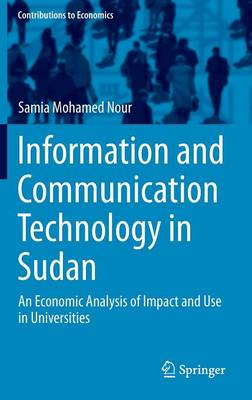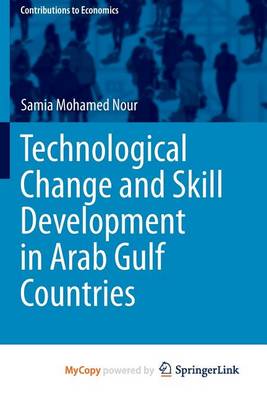Contributions to Economics
2 total works
This book discusses the use, economic importance and impact of Information and Communication Technologies (ICT) in public and private Sudanese universities. The author provides an in-depth analysis of the economic impact of ICT from the demand perspective as well as from the public-private perspective. This book also examines the status, pattern, structure, trend and determinants of the demand for ICT in public and private Sudanese universities. It investigates the economic impacts of the uses of ICT, the potential opportunities and challenges that ICT is expected to create for public and private Sudanese universities, and explains the role of ICT in facilitating the production, creation and transfer of knowledge in Sudanese universities.
Technological Change and Skill Development in Arab Gulf Countries
by Samia Mohamed Nour
Published 16 December 2013
This book discusses skill formation, upskilling of workers, and their interaction with technological change in Gulf countries. Heavy dependence on oil, the 'Dutch Disease', and the high incidence of unskilled foreign workers have caused serious structural imbalances in the labour market in the Gulf. The author shows that success of economic development strategies to address such imbalances are all contingent upon the development of adequate and appropriate skills in the region. This book confirms the role and impact of the deficiencies in the educational system alongside the well established effects of the excessive use of uneducated foreign workers and lack of incentives in the labour market. A comprehensive investigation of the skill problem and an elaborate in-depth analysis to assess the causes, consequences and relationships between poor skills and technological performance are highlights of this book. This is an ideal resource for policy makers in the Gulf region and researchers of the topic.

